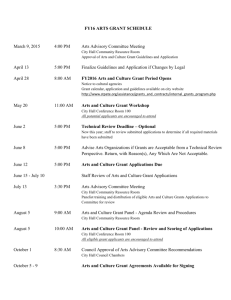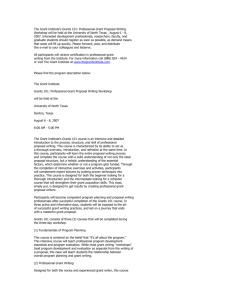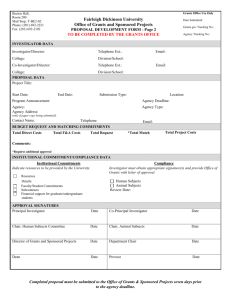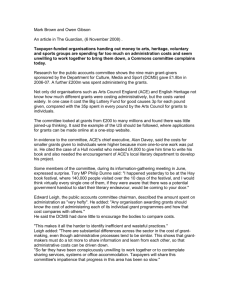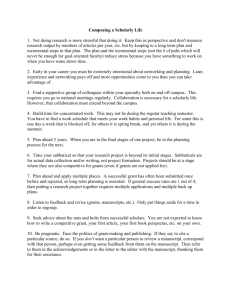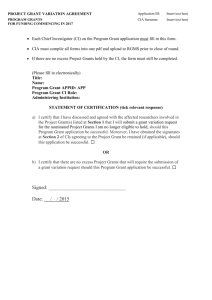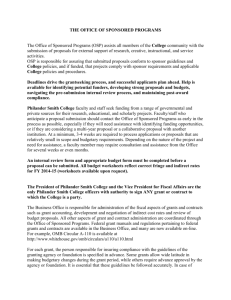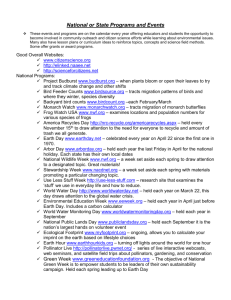Shaking the Money Tree: Grant Writing for Librarians
advertisement
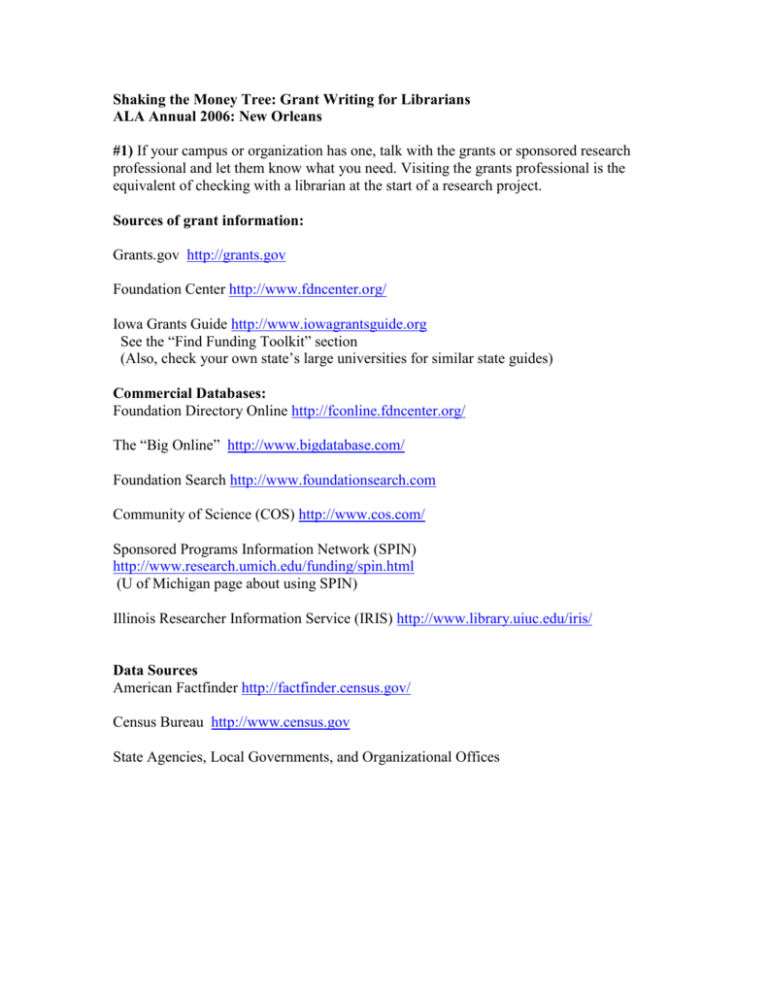
Shaking the Money Tree: Grant Writing for Librarians ALA Annual 2006: New Orleans #1) If your campus or organization has one, talk with the grants or sponsored research professional and let them know what you need. Visiting the grants professional is the equivalent of checking with a librarian at the start of a research project. Sources of grant information: Grants.gov http://grants.gov Foundation Center http://www.fdncenter.org/ Iowa Grants Guide http://www.iowagrantsguide.org See the “Find Funding Toolkit” section (Also, check your own state’s large universities for similar state guides) Commercial Databases: Foundation Directory Online http://fconline.fdncenter.org/ The “Big Online” http://www.bigdatabase.com/ Foundation Search http://www.foundationsearch.com Community of Science (COS) http://www.cos.com/ Sponsored Programs Information Network (SPIN) http://www.research.umich.edu/funding/spin.html (U of Michigan page about using SPIN) Illinois Researcher Information Service (IRIS) http://www.library.uiuc.edu/iris/ Data Sources American Factfinder http://factfinder.census.gov/ Census Bureau http://www.census.gov State Agencies, Local Governments, and Organizational Offices Tips for filling out grant applications: 1) Don’t do it alone. Get information from your colleagues and your grants officer. Bringing in money is important to everybody in an organization, even if it doesn’t benefit them directly. 2) Once you’ve identified a grant you’d like to apply for, read the ENTIRE application. 3) Start making a list of what you will need to do, including who you will need to get data or letters from. 4) Put due dates on that list. Write them on your calendar. 5) Be willing to call and remind your colleagues if they are not producing what is needed on time. 6) Write up the sections you have assigned to yourself. If possible, allow yourself some days for revising. 7) If you realize that cannot get the project done on time, allow yourself to quit gracefully. Save the information you have collected; it may be useful for a future project. 8) Ask for – or hire - help if you need it. It’s nothing to be ashamed of. 9) When the time comes to submit the proposal, stick closely to the deadline. If it’s late, it won’t be accepted.


